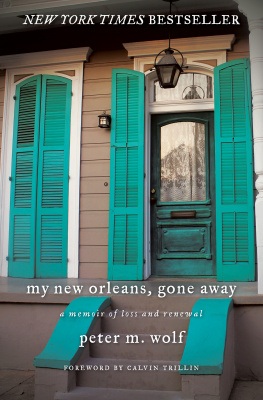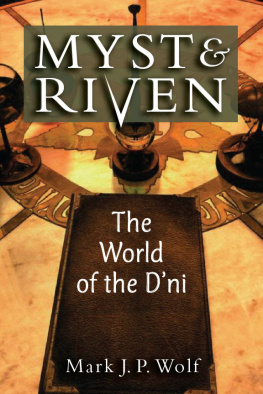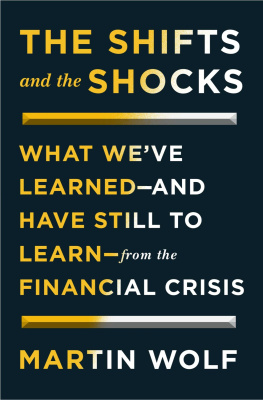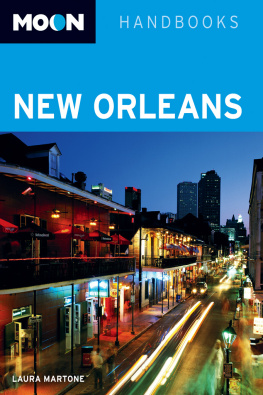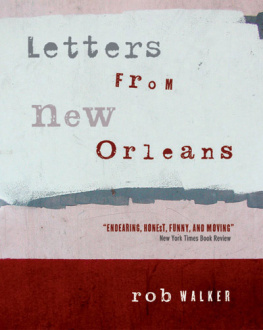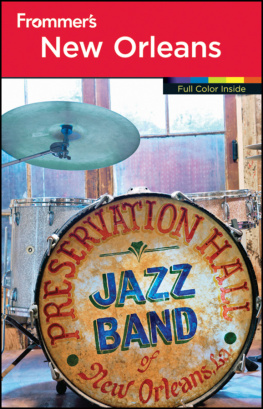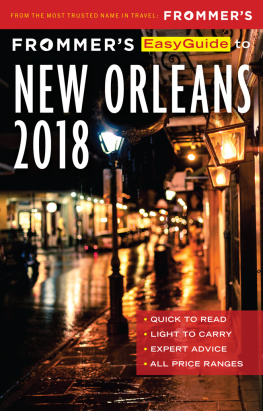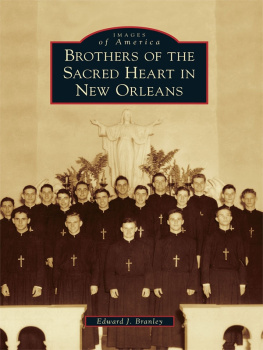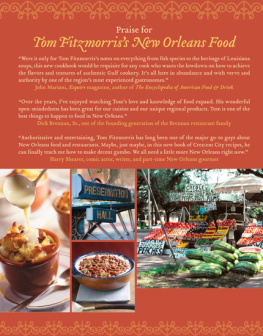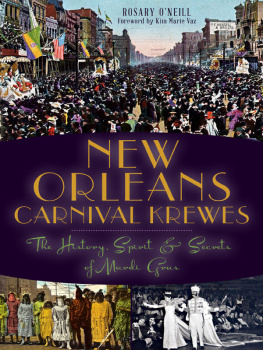my new orleans,
gone away
ALSO BY PETER M. WOLF
Land Use and Abuse in America: A Call to Action
Hot Towns: The Future of the Fastest Growing Communities in America
Land in America: Its Value, Use and Control
The Future of the City: New Directions in Urban Planning
The Evolving City: Urban Design Proposals by Ulrich Franzen
and Paul Rudolph
Eugne Hnard and the Beginning of Urbanism in Paris 19001914
my new orleans,
MY NEW ORLEANS, GONE AWAY
A Memoir of Loss and Renewal
PETER M. WOLF

For Phelan, Alexis, Austin, India, Emory, and Elias
... to leave some tracks in the sand...
... to leave some tracks in the sand...
Authors Note
Some of the details in this book are refracted through the imperfections of memory. Research, letters, diaries, and interviews with people acknowledged herein have helped with authentication and contributed in countless ways. Nevertheless, various conversations and events have been reconstructed as approximations. In some cases I have changed the names of individuals, and disguised aspects of their lives, to protect their privacy.
The end of this memoir presents the dark moods and uncertain prospects that inundated New Orleans in Hurricane Katrinas immediate aftermath. Happily, much has changed in a few years. My New Orleans is again a place of hope and revival.
Contents
Foreword
By Calvin Trillin
P eter Wolf was born a day after I was. Naturally, he has always been like a son to me. Thats why I was surprised to discover that the first mention of me in this book has Peter in the role of Henry Higgins and me as Eliza Doolittlefetching, sure, but essentially clueless. The scene is a New Haven haberdashery, where Peter is helping transform me from an untutored public high school boy who had just arrived from Kansas Citylets not be afraid of the word rube hereinto someone who appeared to be enrolled at Yale, if you didnt look too closely. It is a measure of his discretion that he manages to discuss my preNew Haven wardrobe without any mention of bib overalls.
What became known as the Ivy League Style of clothing didnt reach the hinterlands until a couple of years after we had arrived at Yale. Peter owned the appropriate garments because his own secondary education had been at Exeter, a boarding school that prepared its student sartorially as well as academically for the Ivy League. He was not, however, one of the snooty ur-preppies that my high school friend Growler Ed Williams, who went to
Princeton, used to refer to as tweedy shitballs. Peter went to
Exeter from New Orleans, and when he graduated he was still pure New Orleans. Aside from giving him a familiarity with sack suits and plain-front trousers, the years he put in at an eastern boarding school seemed to have had no more impact on his cultural core than living for a decade in Midland, Texas, had on George H. W. Bush, of Greenwich, Connecticut.
In some passages of this book, I appear as a witness, and I am prepared to attest that, in most cases, Peters recollections of long-ago events square with my own. For instance, when during freshman year I showed up in his room to finish the geology project we had to hand in the next morningwe had been paired to do a report on the geology of West Rock (the seven-mile-long, sometimes 700 feet-high mountain ridge west of New Haven) for the course that many mush-head liberal arts majors took to satisfy the science requirementhe was at least as drunk as he says he was. When he spent a week in Paris while I was living there, just after college, he did indeed visit museums while I spent most of my time playing pinball in grubby Left Bank cafs. Of course, he could have mentioned how adroitly I manipulated the flippers on those pinball machines or how authentically I would mutter, if one of my best flips sent the ball into the wrong slot, Quelle ironie. But I dont mention that as a complaint: This is Peters story, not mine.
Preface
S unday evening, August 28, 2005, East Hampton, New York. Hurricane Katrina moves steadily across the Gulf of Mexico toward New Orleans, pushing an eighteen-foot storm surge.
Peter, were scared.
Its Gail calling again. Our house is locked; no one is there. Do you think we should try to get back to New Orleans? Were in North Carolina.
Dont, I caution. The governor has issued evacuation orders.
Id been watching news and on the phone all day, talking to relatives and friends in and out of the city about the approaching storm. It had swerved decisively toward New Orleans. More than a hundred thousand people were fleeing. Roads were jammed. Shelters were being hastily prepared. More than a quarter of the population had no means of escape.
We want to go back, my sister continued. Maybe we could save our house.
You have to stay away, Gail, I said. Its too dangerous. You couldnt even get through the National Guard security cordon.
Ill check with you in the morning, she said, sad and distraught.
That afternoon Id hosted croquet and a barbecue for my two children, their spouses, and my four young grandchildren. Afterward Id hoped to enjoy the magical light cast by a long summer sunset. Instead, I was on edge. What would become of the city Id left forty-two years before, had returned to so often, and still called home?
Early Monday morning. Katrina slams New Orleans. With sustained winds of seventy-five miles per hour, shes a serious but not ferocious hurricane. The levees appear to hold: water, wind, and rain damage is relatively light.
Monday night. Everything changes. Due to catastrophic structural failure, weak sections of the 350-mile-long levee system cave along the Industrial Canal, the Seventeenth Street Canal, and the London Avenue Canal. Water pours into the 80 percent of the city below sea level. The citys pumps, inundated, fail. The bowl fills up. First two feet, then higher and higherin some areas water reaches above mantelpieces; in extreme cases it rises as high as fourteen feet. Fetid water mixed with oil, trash, and sewage stagnates; the air above turns rancid.
Tuesday. The rank, water-filled city is isolated: electricity, phone, and cable lines are out. No medical service is available. People die, at least a thousand. Others chop through roofs and await rescue. Entire parts of town are now destroyed. Mold begins to flourish. A third of the population becomes homeless. The storms aftermath will be recognized as the worst civil engineering disaster in U.S. history.
Days pass. Along with people all over the world, I am ever more saddened by the area-wide human hardship, the physical chaos, the manifest government ineptitude. For six generations my family has been at home in New Orleans. At peril suddenly are relatives, friends, cherished neighborhoods, a unique blend of cultures, a landscape that I love, and a long family history in one place. Parts of New Orleans and the Gulf Coast that shaped my early drives, as well as my talents and tastes and habits, are vanishing.
Once I become aware of the scale of human tragedy and physical devastation, a wake-up call on the fragility of life, I decide that in my own way I will try to preserve what I can, and understand what I have not, by writing this memoir.
Peter M. Wolf
New York City, Spring 2013
Part I
MY NEW ORLEANS
1
Swinging
D ad didnt know I was afraid to try the swing. I hoped hed never find out. When no one was looking, Id lie across the wooden seat on my belly. I was sure Dad would be ashamed of my timidity.
Even late in the afternoon, when Id been out of school for two hours, it was still hot. I hadnt told Mom or Georgie, our housekeeper and cook, that I was going to walk down our street, Brockenbraugh Court, to the empty lot at the corner of Metairie Road, the principal street leading into the city. They might have said it was too close to dinnertime. Dad had never been in the lot, but he drove past it every day on his way to work. So did Mom, on her way to play canasta or golf. There was no other way into town. My parents didnt know that the neighborhood boys met there every Saturday morning. When I looked down my street from the lot, I could see our one-story, light yellow ranch house two blocks away.

